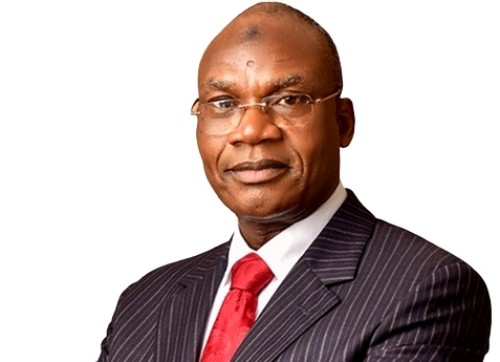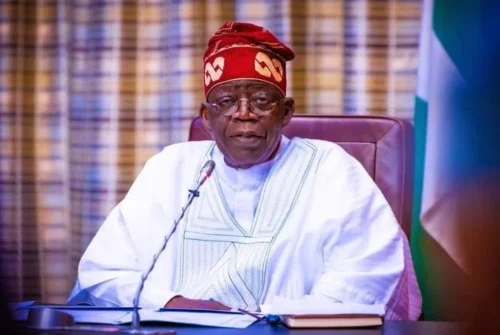President Bola Tinubu has declared that 2026 marks the beginning of a more robust phase of economic growth for Nigeria, pledging to drive down inflation further, strengthen foreign reserves and sustain the country’s GDP growth trajectory.
In his New Year message to Nigerians on Thursday, the President expressed confidence in the nation’s collective resolve, saying the new year would be a more prosperous one for the country, its citizens, and all who call Nigeria home.
Tinubu argued that during 2025, his administration sustained momentum on major reforms, achieved a fiscal reset and recorded steady economic progress. Despite persistent global economic headwinds, he said, Nigeria recorded tangible and measurable gains, particularly in the economy.
“These achievements reaffirm our belief that the difficult but necessary reforms we embarked upon are moving us in the right direction with more concrete results on the horizon for the ordinary Nigerian,” he stated.
The President disclosed that Nigeria closed 2025 on a strong note, with annualised GDP growth expected to exceed four per cent for the year.
Trade surpluses were maintained, and greater exchange rate stability was achieved, while inflation declined steadily to below 15 per cent, in line with his administration’s target.
“In 2026, we are determined to reduce inflation further and ensure that the benefits of reform reach every Nigerian household,” he said.
Tinubu pointed to the performance of the Nigerian Stock Exchange, which, he said, posted a robust 48.12 per cent gain in 2025, consolidating its bullish run that began in the second half of 2023.
On foreign reserves, he disclosed that sound monetary policy management had seen reserves stand at $45.4bn as of December 29, 2025, providing a substantial buffer against external shocks for the Naira. He expressed optimism that this position would strengthen further in the new year.
Foreign direct investment, the President noted, was also responding positively. In the third quarter of 2025, FDI rose to $720m, up from $90m in the preceding quarter, reflecting renewed investor confidence in Nigeria’s economic direction, which global credit rating agencies, including Moody’s, Fitch, and Standard & Poor’s, had consistently affirmed and applauded.
Tinubu recalled that he recently presented the 2026 Appropriation Bill to the National Assembly, emphasizing that his administration had implemented critical reforms laying a solid foundation for long-term stability and prosperity.
“With patience, fiscal discipline, and unity of purpose, Nigeria will emerge in 2026 stronger and better positioned for sustained growth,” he said.
As inflation and interest rates moderate, the President said, his administration expected increased fiscal space for productive investment in infrastructure and human capital development.
He commended states that had aligned with the national tax harmonization agenda by adopting harmonized tax laws to reduce the excessive burden of taxes, levies, and fees on citizens and basic consumption.
The new year, Tinubu added, marks a critical phase in implementing tax reforms designed to build a fair, competitive, and robust fiscal foundation for Nigeria.
On security, the President acknowledged that the nation continues to confront threats from criminal and terrorist elements.
He disclosed that in collaboration with international partners, including the United States, decisive actions were taken against terrorist targets in parts of the Northwest on December 24.
The Armed Forces, he said, had since sustained operations against terror networks and criminal strongholds across the Northwest and Northeast.
“In 2026, our security and intelligence agencies will deepen cooperation with regional and global partners to eliminate all threats to national security. We remain committed to protecting lives, property, and the territorial integrity of our country,” the President stated.
He reiterated his belief that a decentralised policing system with appropriate safeguards, complemented by properly regulated forest guards and anchored on accountability, was critical to effectively addressing terrorism, banditry, and related security challenges.
Tinubu also announced plans to accelerate the implementation of the Renewed Hope Ward Development Programme, aiming to bring at least 10 million Nigerians into productive economic activity by empowering at least 1,000 people in each of the 8,809 wards across the country.
Through agriculture, trade, food processing, and mining, he said, the administration would stimulate local economies and expand grassroots opportunities. Investment would also continue in modernising Nigeria’s infrastructure, including roads, power, ports, railways, airports, pipelines, healthcare, education, and agriculture, to strengthen food security and improve quality of life.
The President called on all Nigerians to play their part, describing nation-building as a shared responsibility that required unity of purpose, patriotism, and service with honour and integrity.
“To achieve our objectives in 2026, we must all play our part. Nation-building is a shared responsibility.
“We must stand together in unity and purpose, uphold patriotism, and serve our country with honour and integrity in our respective roles. Let us resolve to be better citizens, better neighbours, and better stewards of our nation.
“Fellow Nigerians, I wish you all a peaceful, productive, and prosperous New Year. May God continue to bless and protect our beloved country, keep our troops safe and destroy the enemies bent on disrupting our national peace, security and stability,” he stated.


 ENTERTAINMENT4 days ago
ENTERTAINMENT4 days ago
 BIG STORY16 hours ago
BIG STORY16 hours ago
 BIG STORY3 days ago
BIG STORY3 days ago
 BIG STORY4 days ago
BIG STORY4 days ago
 BIG STORY3 days ago
BIG STORY3 days ago
 Uncategorized1 day ago
Uncategorized1 day ago
 BIG STORY3 days ago
BIG STORY3 days ago
 BIG STORY3 days ago
BIG STORY3 days ago














